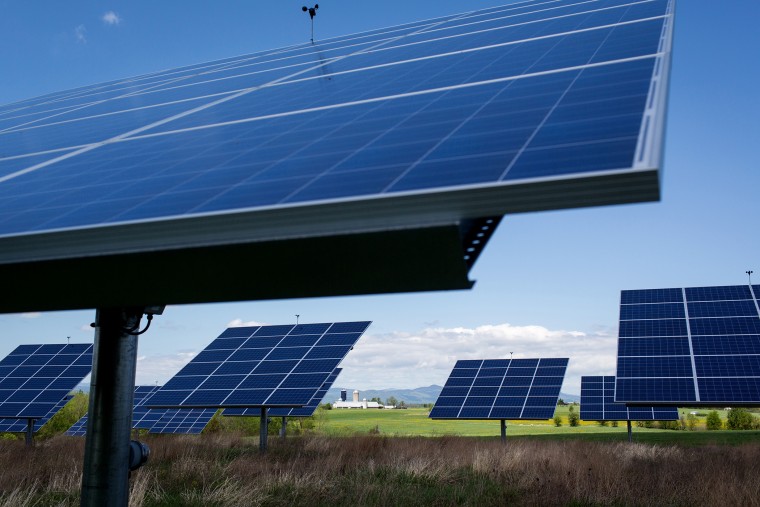The Obama administration will put $68 million toward improving green energy infrastructure in rural areas, the White House announced on Thursday. The allocation of those funds, which according to a White House statement will go toward "540 renewable energy and energy efficiency projects in rural areas," is just one of a slate of environmental measures the administration unveiled this week.
The other measures include a proposal to tighten regulations on air conditioner efficiency and building codes. The White House said it would also work with military bases to train veterans for jobs in the solar energy industry.
The initiatives announced on Thursday are the latest in a series of unilateral executive actions aimed at combating climate change. These efforts began near the beginning of President Obama's second term, shortly after he tapped former Clinton aide and Center for American Progress (CAP) founder John Podesta to join his administration as an adviser. Due to the dim prospects that any ambitious climate change legislation could ever make it through this Congress, part of Podesta's brief was to come up with ways in which the White House could act on its own. The result has been a series of executive orders and regulatory overhauls aimed at reducing carbon emissions and boosting renewable energy.
The most dramatic new regulation to be proposed thus far is the suggested 30% cut in power plant emissions that the Environmental Protection Agency (EPA) suggested in June. Under that proposal, which is still in the review stage, state governments would be in charge of bringing power plant emissions down below the designated benchmark before 2030.
The new executive actions that were announced on Thursday come just days before what is expected to be the largest gathering of environmental activists in history. Organizers for the People's Climate March say they expect more than 100,000 people to converge on New York City this Sunday, where they will demand that world leaders take more aggressive action to prevent catastrophic climate change. The march will take place two days before the United Nation's 2014 Climate Summit at its headquarters in New York.
